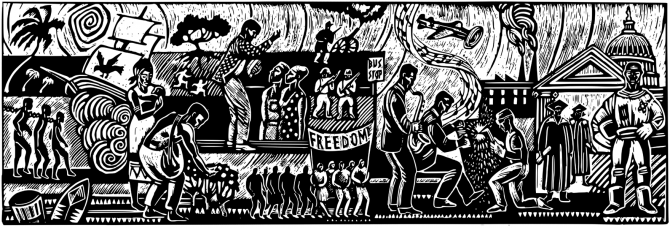February is African American History Month. Known popularly as “Black History Month,” it was the idea of author and historian Carter G. Woodson. It was originally celebrated during the second week in February coinciding with the birthdays of Abraham Lincoln and Frederick Douglass. Jamestown Community Library and Greene County Public Library have an intriguing variety of books and materials for all ages documenting the African American experience in our nation’s history. Visit the library and see our February displays including these titles and many more.
100 Amazing Facts About the Negro: Arranged topically as the answers to a series of questions, each 2–3 page article sheds light on both famous and lesser known historical figures, as well as correcting popular misconceptions and adding details. Pages 266–269 recount how Black History Month came to be.
Stolen: Five Free Boys Kidnapped Into Slavery and Their Astonishing Odyssey Home: Tells of five boys kidnapped into slavery from Philadelphia in 1825. An account of the “Reverse Underground Railroad” run by kidnappers and slavers taking free black people to the South.
When We Were Kings: Winner of the Academy Award for Best Documentary Feature in 1996, When We Were Kings tells the story of the 1974 heavyweight fight between Muhammad Ali and George Foreman dubbed “The Rumble in the Jungle.”
Rising From the Rails: Pullman Porters and the Making of the Black Middle Class: The Pullman Company began hiring African Americans to work on their luxury sleeping cars following the Civil War. For nearly a century, the Pullman porter had one of the best jobs open to African Americans and one of the worst jobs on the railroad. Porters were exposed to great disparities on the trains as they travelled the country. As a class of workers, they became instrumental in the fight for unionization and civil rights.
Reporting Civil Rights: Part 1 and Reporting Civil Rights: Part 2: Fascinating two-volume anthology of reporting “as it happened” on the struggle for civil rights. Part 1 begins by covering conditions in the lesser-known decade of the 1940s through 1963. Part 2 covers 1963–1973. Full of contemporary first-person accounts and reporting.



Add a comment to: In Recognition of African American History Month